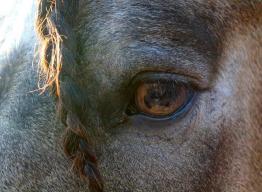The World Health Organization (WHO) launched its new project this week- one that will provide over 300 million Africans with a new meningitis vaccine.
Meningitis killed 4,000 of 78,000 diseased people in Africa last year. The new vaccine was produced in India, and ensures immunity against group A meningococcus, a bacteria responsible for up to 85% of meningitis cases in the region. This vaccine is also more affordable than the previous one.
The WHO’s campaign was initiated in Burkina Faso, where 12-16 million are to be vaccinated over the course of ten days. The movement will cover 25 sub-Saharan countries in total which are part of the “meningitis belt,” which stretches from Senegal to Ethiopia.

 Lap-Band is a flexible, small apparatus which is designed to be inserted as a band around a person’s stomach to force him to eat less, and thus helping him to lose considerable weight. At the moment the device is approved only for morbidly obese patients, but the FDA is considering expanding its use to include less obese people, including people like Angela Denson who has been struggling with obesity for 20 years, since she first began having children.
Lap-Band is a flexible, small apparatus which is designed to be inserted as a band around a person’s stomach to force him to eat less, and thus helping him to lose considerable weight. At the moment the device is approved only for morbidly obese patients, but the FDA is considering expanding its use to include less obese people, including people like Angela Denson who has been struggling with obesity for 20 years, since she first began having children. Horseback riding can be therapeutic for people with mental disabilities, emotional disorders, and people who are handicapped. The motion and position of the rider while on a horse greatly improves the balance, spatial awareness, coordination and motor development, all of which are common problems in such people. The control of the mind and body which are required to ride can help the person become more sensitive to his or her surroundings, and also to consider other factors in his situation besides himself. This also helps improve the person’s reaction time.
Horseback riding can be therapeutic for people with mental disabilities, emotional disorders, and people who are handicapped. The motion and position of the rider while on a horse greatly improves the balance, spatial awareness, coordination and motor development, all of which are common problems in such people. The control of the mind and body which are required to ride can help the person become more sensitive to his or her surroundings, and also to consider other factors in his situation besides himself. This also helps improve the person’s reaction time.